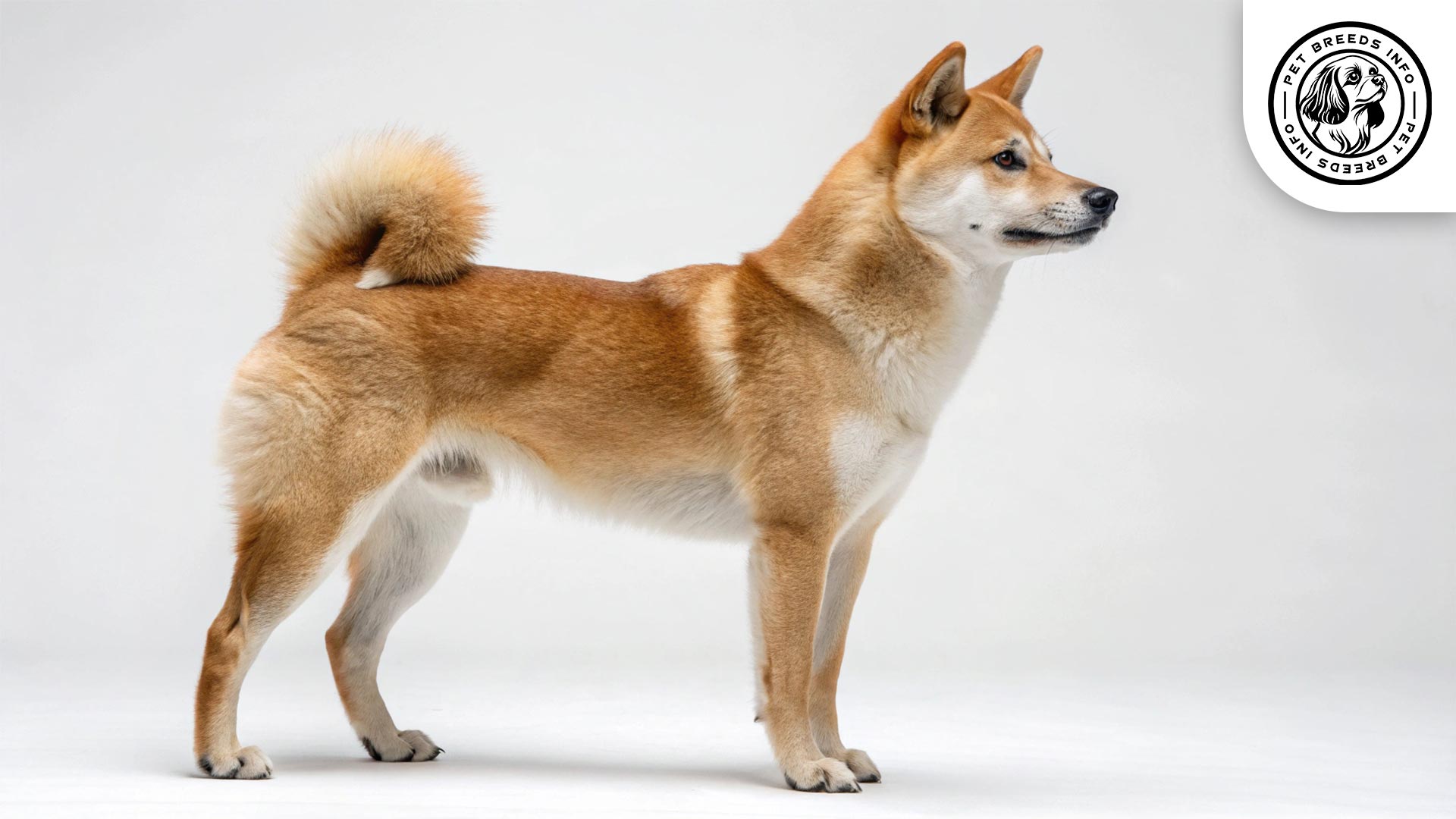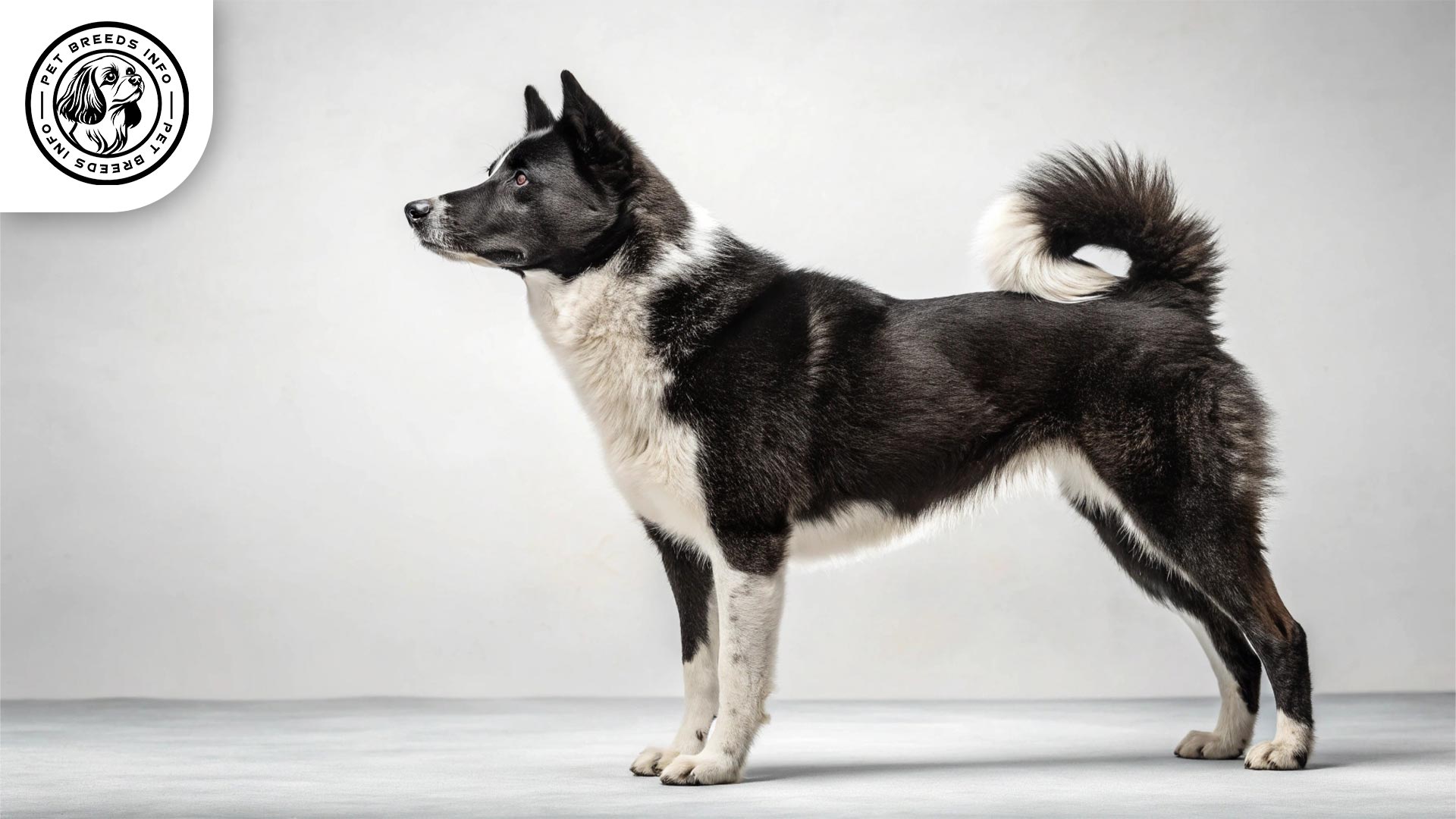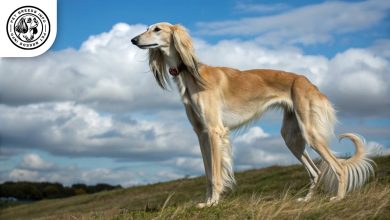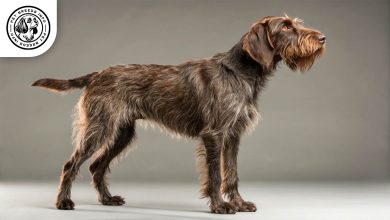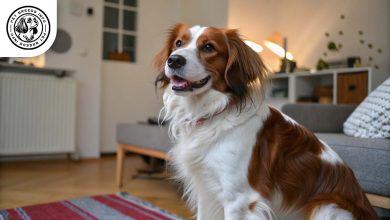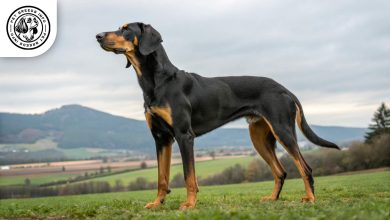Kishu Ken Dog Breed: Size, Health, Price & Personality
General Introduction of the Breed
The Kishu Ken, also known simply as Kishu, is a rare and ancient dog breed from Japan. It is named after the Kii Province, now known as Wakayama and Mie Prefectures, where it was originally bred. The breed has a long history dating back several thousand years and was primarily used for hunting boar and deer in the mountainous regions of Japan. Today, the Kishu Ken is recognized as a national treasure in Japan and is highly valued for its loyalty and hunting skills.
Table of Contents
| Weight | 25-45 lbs (11-20 kg) |
| Lifespan | 12-15 years |
| Diet | High-protein kibble, raw diet, lean meats |
| Care | Moderate grooming, regular exercise needed |
| Health | Prone to hip dysplasia, allergies, autoimmune disorders |
| Color | White, red, sesame |
| Nature | Loyal, independent, intelligent |
| Price | $1,500-$3,500 |
Physical Characteristics
The Kishu Ken is a medium-sized, well-proportioned dog with a muscular build. Males typically stand between 19 to 22 inches (49 to 55 cm) tall and weigh between 30 to 45 pounds (14 to 20 kg). Females are slightly smaller, measuring about 17 to 20 inches (43 to 50 cm) in height and weighing around 25 to 40 pounds (11 to 18 kg).
The breed has a short, dense double coat that provides insulation in various weather conditions. The coat colors are primarily white, red, or sesame (a mix of red and black hairs). White is the most common color due to selective breeding practices in Japan.
The Kishu Ken has almond-shaped, dark brown eyes that give it a keen and alert expression. Its ears are triangular, erect, and slightly forward-facing, which aids in its sharp sense of hearing. The tail is thick, carried curled over the back, or in a sickle shape, contributing to the breed’s elegant and balanced appearance.
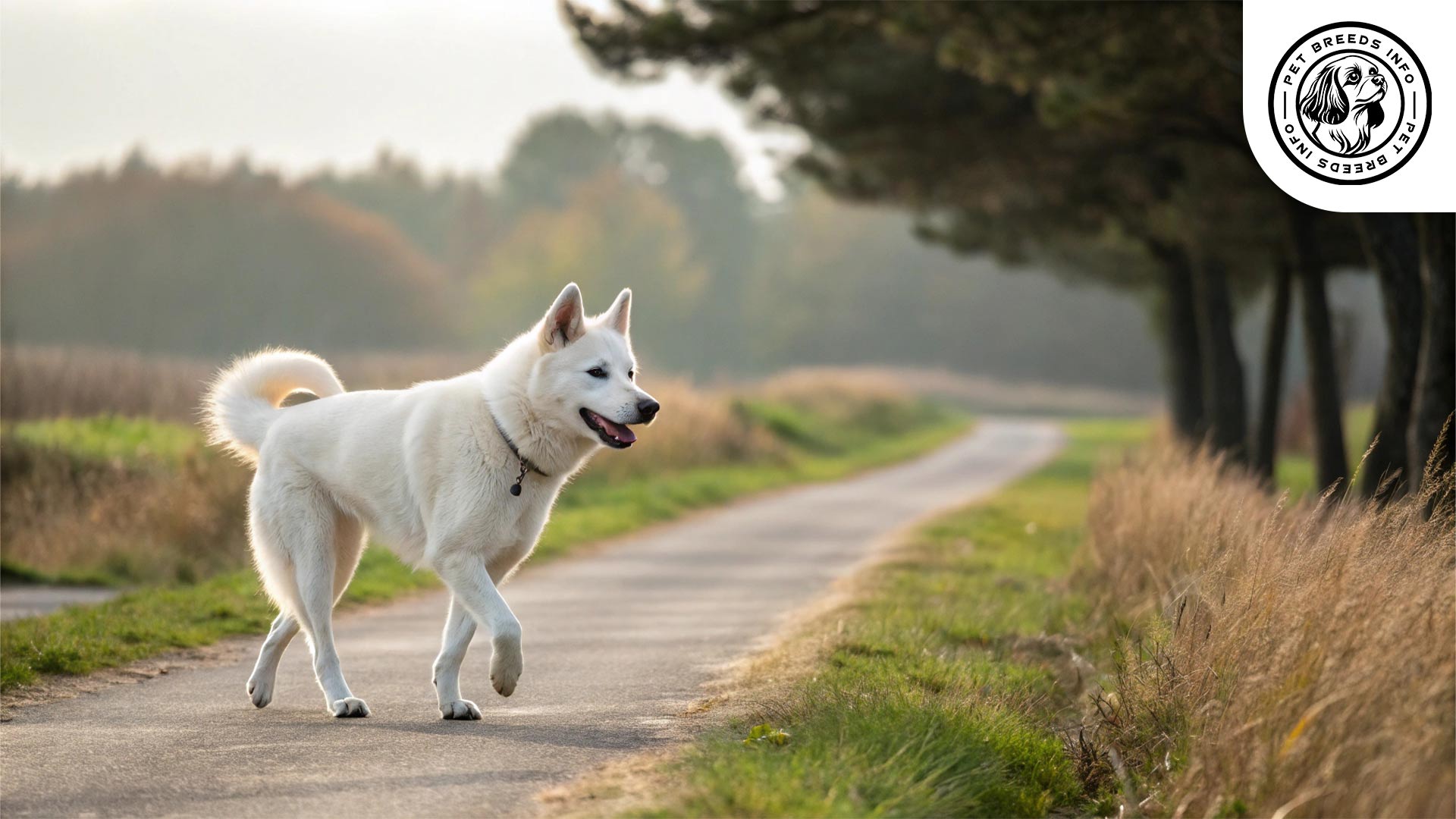
Personality and Temperament
The Kishu Ken is an intelligent and independent breed, making it both trainable and sometimes stubborn. It builds a strong bond with its owner and is known for its extreme loyalty.
The breed has a moderate to high energy level and requires regular physical and mental stimulation. It is reserved around strangers but extremely affectionate toward family members. While it can be a great companion for children, early socialization is essential for ensuring positive interactions.
The Kishu Ken has strong hunting instincts, which can result in a high prey drive. It may not be suited for homes with smaller pets unless proper training and supervision are provided. The breed is highly adaptable but may not respond well to sudden environmental changes.
Care and Maintenance Requirements
Due to its natural athleticism, the Kishu Ken requires regular exercise, including daily walks, playtime, and agility activities. A home with a secure yard is ideal, but it can adapt to apartment living if given sufficient exercise.
The grooming needs of this breed are low to moderate. The Kishu Ken has a self-cleaning coat and only requires brushing once or twice a week to manage shedding. However, during seasonal shedding periods, more frequent brushing is recommended.
Read More: Japanese Terrier Dog
The breed is generally resilient to both hot and cold weather but should be monitored in extreme temperatures. Routine hygiene, including nail trimming, ear cleaning, and dental care, is essential for maintaining its overall health.
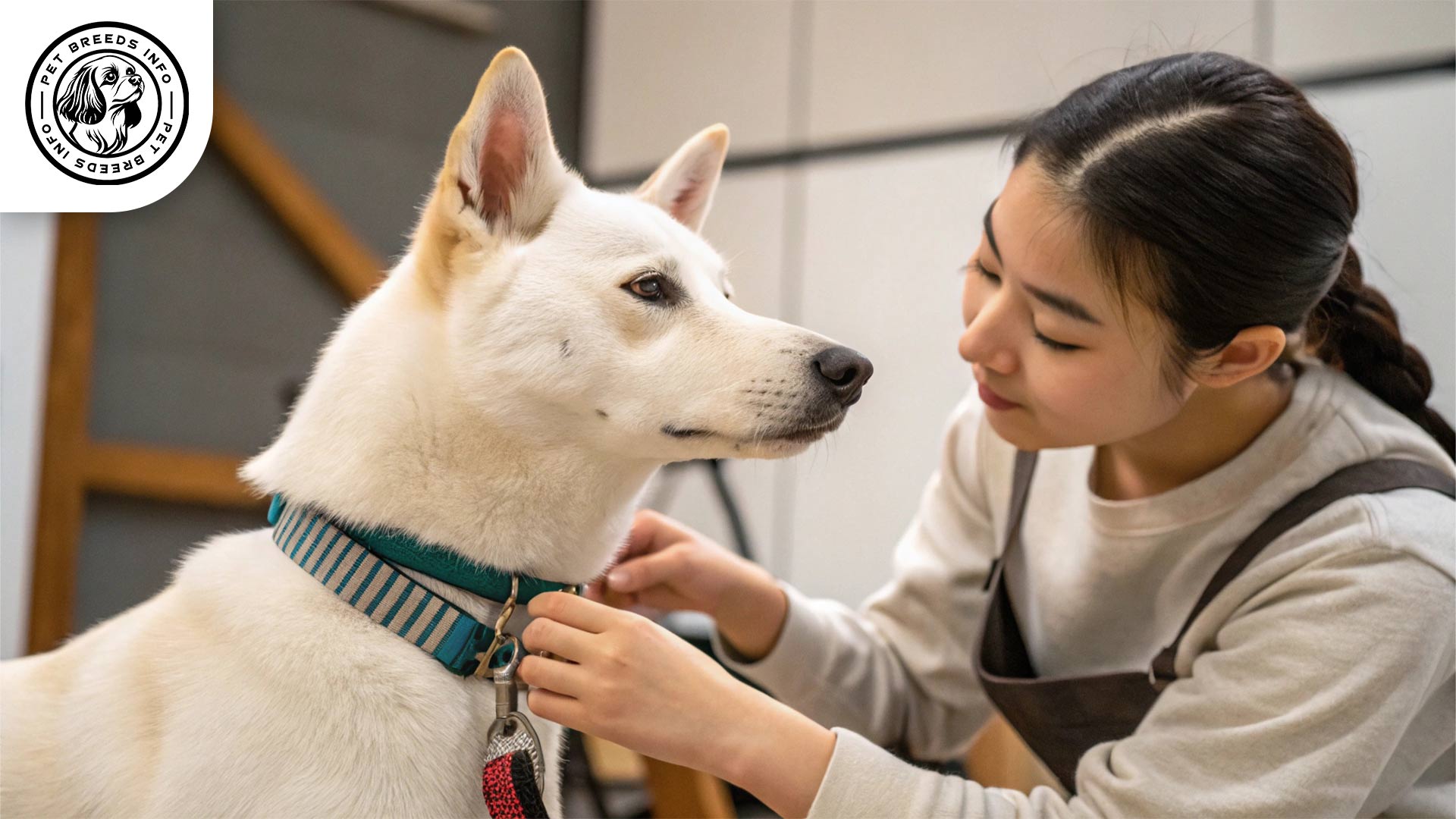
Diet and Nutrition
The Kishu Ken thrives on a high-protein diet consisting of quality dry kibble, raw food, or a natural diet with balanced nutrients. Owners should ensure their dog’s diet includes essential vitamins, healthy fats, and protein sources such as fish and lean meats.
Foods that should be avoided include chocolate, onions, grapes, and excessively processed human foods. The recommended feeding schedule is twice a day, with portion sizes depending on age, weight, and activity level.
Health and Common Medical Issues
The Kishu Ken is generally a healthy breed, but it can be prone to certain genetic conditions, such as hip dysplasia, allergies, and autoimmune disorders. Regular veterinary checkups and a well-balanced diet can help minimize potential health risks.
The average lifespan of the Kishu Ken is around 12 to 15 years. Routine vaccinations, flea and tick prevention, and regular vet checkups are essential for ensuring a long and healthy life.
Training and Behavior Management
Training the Kishu Ken requires patience and consistency. This breed is intelligent and can learn commands quickly, but it also has an independent nature, which can lead to stubbornness.
Read More: Korean Jindo Dog
Early socialization and obedience training are crucial to raising a well-mannered dog. Positive reinforcement techniques, such as treats and praise, work best. Harsh training methods should be avoided, as they can cause the breed to become more reserved or uncooperative.
Interaction with Other Animals and Humans
The Kishu Ken generally does well with children if properly socialized from an early age. Due to its hunting background, it may not always get along with smaller pets like cats unless raised with them.
While loyal to its owner, the breed has an independent side that makes it suitable for experienced dog owners. It may be best for individuals or families who can provide consistent training and companionship.
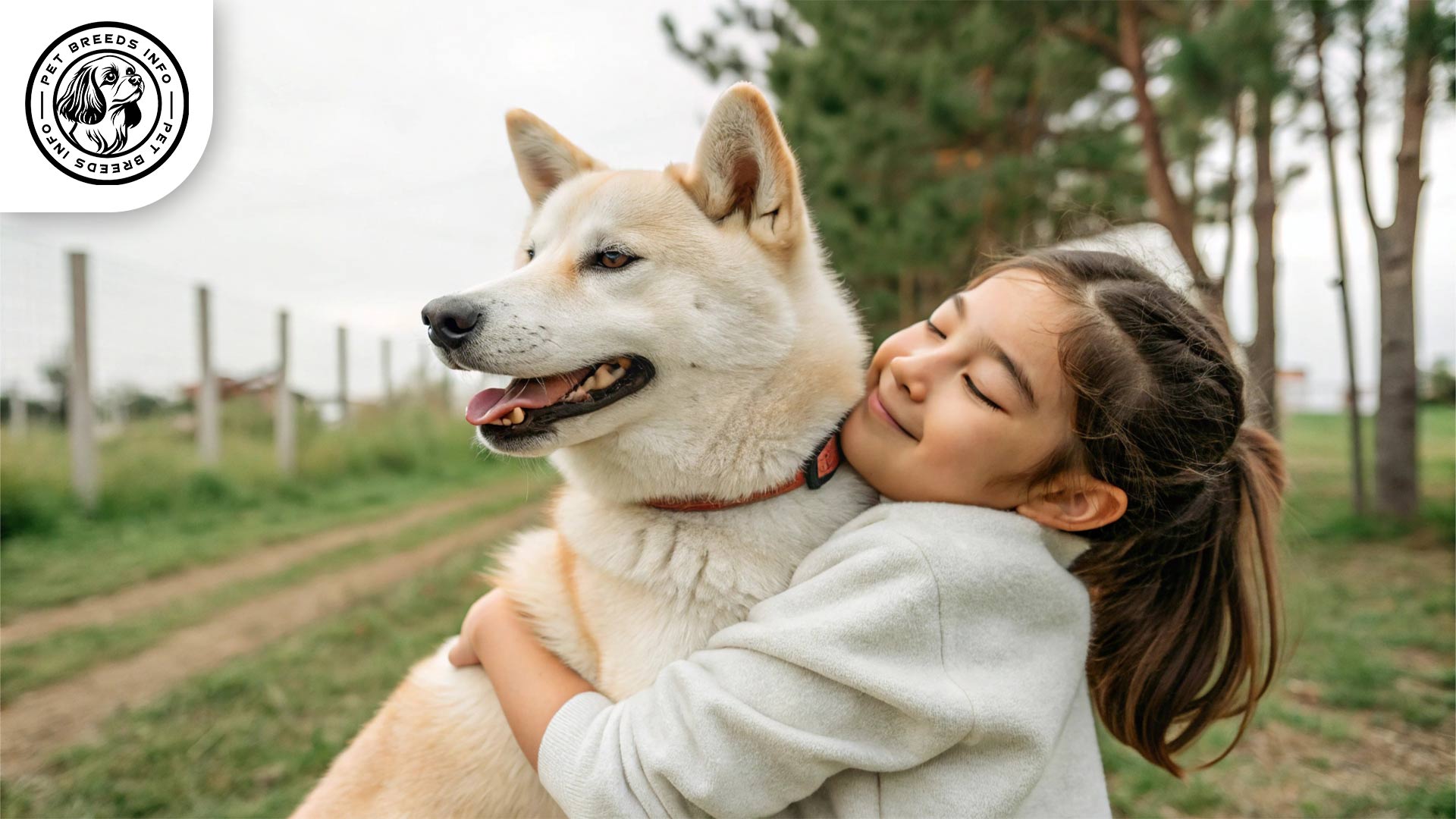
Price and Availability
The Kishu Ken is a rare breed, especially outside of Japan. The price for purchasing a Kishu Ken puppy can range from $1,500 to $3,500, depending on the breeder’s reputation and the dog’s lineage.
Potential owners should seek reputable breeders or adoption centers specializing in Japanese breeds. Due to its rarity, finding a Kishu Ken for adoption may take time, but reputable rescue organizations may occasionally have this breed available.
Conclusion and Final Thoughts
The Kishu Ken is a highly loyal and intelligent breed best suited for dedicated owners who can provide training, socialization, and ample exercise. While it may not be ideal for novice dog owners due to its independent nature, it thrives in active households where it can form a close bond with its owner.
Read More: Keeshond Dog
If you are looking for a faithful and courageous companion with a rich history, the Kishu Ken is an excellent choice. However, potential owners should carefully consider its exercise needs, hunting instincts, and training requirements before making a commitment.
FAQ
Is the Kishu Ken a good family dog?
Yes, it is loyal and affectionate with family, but early socialization is essential for good behavior with children and other pets.
How much exercise does a Kishu Ken need?
Daily walks, playtime, and mental stimulation are necessary due to its high energy and hunting instincts.
Does the Kishu Ken require a lot of grooming?
No, its short, self-cleaning coat requires minimal grooming, but weekly brushing helps manage shedding.
Can the Kishu Ken live in an apartment?
Yes, but only if given enough exercise and mental stimulation to meet its energy needs.
